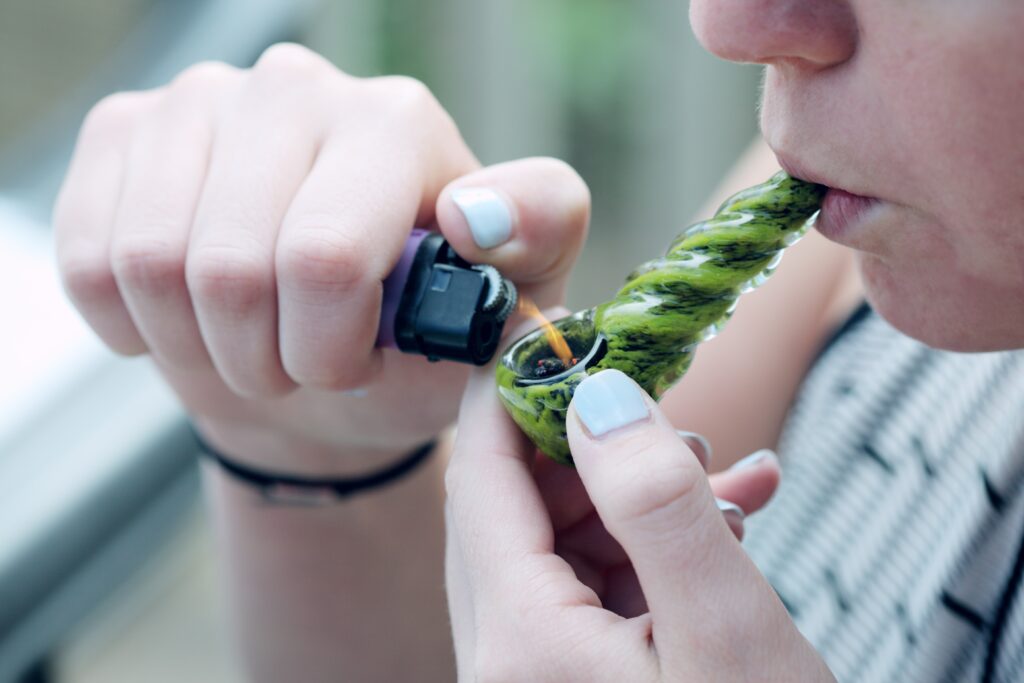Most people who struggle with substance abuse wish something would
change.
They wish they could stop.
They wish they could find strength.
They wish they could find help.
From inpatient treatment programs to mental health evaluations, people who struggle with substance abuse have a variety of options to help them find the support they need to finally break their addiction once and for all.
But sadly, many of those people will continuously hit roadblocks that won’t allow them to get what they need.
KEY TAKEAWAYS:
- There are many different ways to treat alcohol and drug addiction and finding the right one for you can be overwhelming.
- Inpatient treatment is an excellent form of care but is not always realistic for everyone.
- Intensive outpatient programs can be an outstanding alternative to inpatient care, but you need to make sure you’ve done your research before committing to one.
Though there are hundreds of different approaches to addiction treatment recovery, one that is often overlooked is an intensive outpatient program.
Intensive outpatient programs have been growing in popularity in the last few years, as they have the ability to offer a person struggling with an addiction some treatment options that serve as alternative ways in which to go through addiction treatment.

Instead of having to enroll in inpatient programs or participate in residential treatment, an intensive outpatient treatment program will serve as one of the alternative therapies that are now becoming available.
Let’s take a deeper dive into intensive outpatient programs and see if an intensive outpatient rehab may be the right way for you to beat your addiction once and for all.
What is an Intensive Outpatient Program?
What is IOP Program? An Intensive Outpatient Program (also commonly known as IOP) or Intensive Outpatient Care Program is a form of substance abuse treatment that offers intensive therapy and support while also allowing patients to continue living at home and fulfilling the majority of their regular responsibilities, particularly those that occur at night.
IOPs are typically designed for individuals who do not require round-the-clock medical supervision or detoxification, but still need or require an IOP program mental health treatment plan to address their and substance abuse issues.
Though no intensive outpatient programs should be seen as a partial hospitalization program, most of them do have an inpatient feel to their approach toward substance abuse.
The primary goal of an IOP is to provide patients with the tools and skills they need to maintain sobriety and lead a fulfilling life without drugs or alcohol.
They will also center heavily on helping an individual address any mental health disorders that play a role in the person’s addiction.

Treatment in an IOP typically involves a combination of individual therapy and group therapy sessions, psychoeducation and mental health concerns, and relapse prevention coping skills.
The best IOPs will also offer additional services, such as family therapy, holistic therapies, and medically assisted treatment or MAT program.
One of the key benefits of an IOP is that it offers a flexible treatment option for individuals who need help with their addiction, but just cannot commit to a full-time residential inpatient program.
How Do I Know if I Need an Intensive Outpatient Program?
For many people who struggle with an addiction, knowing when it’s time to seek help can be a real challenge.
Addiction is a sneaky fellow. It knows how to consistently gaslight you into thinking that you “got this” or that you can “quit anytime.”
The only way to ward off gaslighting is to look at the facts. Here are some that will help you determine if you meet IOP program requirements:

- You have struggled with addiction for a prolonged period of time and have attempted to quit or cut back on your own with little to no success.
- Your substance use has resulted in negative consequences such as legal issues, financial problems, or strained relationships.
- You have experienced physical or mental health issues as a result of your substance use.
- You have a history of relapse after previous attempts at quitting.
- You have completed a detoxification program or residential treatment program but require additional support to maintain sobriety.
- Your daily life is being negatively impacted by your substance use, such as missing work, neglecting responsibilities, or engaging in risky behavior.
- You have a co-occurring mental health disorder that requires treatment alongside your substance abuse issues.
Do some of these ring true for you? Even if they are uncomfortable to read, if any of the above statements sound like you, your addiction may be gaslighting you.
It’s time to get help.
IOP Program Versus Inpatient Treatment Program: What’s the Difference?
Once you’ve committed to seeking help for your substance abuse disorder, you are well on your way to recovery.
Making the choice to enter into an addiction treatment program is by far the most difficult part of this entire journey and one that you should never take lightly.
But now, the next question is, what type of treatment options are going to be best for you?
Let’s start with two of the most effective programs as well as the two most common:
Inpatient treatment programs
What is an IOP Program? Inpatient treatment programs, also known as residential treatment programs, offer 24/7 medical supervision and support in a structured and residential setting.
Patients typically stay at the treatment facility for a period of several weeks to several months, during which time they receive a range of therapies and interventions to address their substance abuse issues.

From addressing mental health issues to addressing family trauma, an inpatient program is generally recommended for someone who requires a high level of medical care, has a history of severe addiction or abuse, and/or has co-occurring mental health symptoms that require intensive treatment.
Intensive Outpatient Programs:
IOPs, on the other hand, offer a more flexible treatment option for individuals who do not require round-the-clock medical supervision.
When attending an IOP intensive outpatient program, a person will be able to attend individual therapy and group therapy sessions for several hours a day, typically three to five days per week, but then spend their evenings at home.
They will also have all the other medical and mental health resources available to them that they would if they were enrolled in an inpatient treatment program.
The biggest difference between these two programs is that IOPs are designed to provide patients with intensive therapy and support while also allowing them to return home instead of stay at the facility.
This independence that an IOP allows means that a patient can maintain a sense of normalcy in their daily lives while also getting the much needed care that they would normally only be able to receive in an inpatient treatment program.
Ultimately, the choice between an IOP and an inpatient treatment program depends on your needs and specific circumstances. You can find IOP program Chicago, IOP program Dallas, IOP program San Diego, IOP program Houston, IOP program Denver, IOP program NYC, IOP program Los Angeles, IOP program Las Vegas, IOP program Massachusetts, IOP program Philadelphia, or online IOP program. But the more research you do, the more you’ll be able to figure out what is going to be right for you.
What Should I Look for in an Intensive Outpatient Treatment Program?
If – after your research on IOP program meaning and requirements – you decide that an intensive outpatient rehab program is the right treatment for your substance abuse issues, then it’s going to be vital that you make sure any program you are considering meets certain specifications…some professional and some personal.
Here are some questions you must ask before you commit to any one intensive outpatient program:
What is the accreditation?
Make sure that you choose an IOP that is accredited by a reputable organization, such as the Joint Commission or the Commission on Accreditation of Rehabilitation Facilities (CARF). Having the right accreditation ensures that the program you are considering meets certain quality standards and is regularly reviewed for compliance. Rather you’re looking for IOP program Orange County or an IOP program near me, make sure they’re an accredited and high quality facility.
What is the treatment philosophy? Look for an IOP that aligns with your treatment goals and values. Some programs may focus on a 12-step approach, while others may incorporate alternative therapies such as mindfulness or cognitive-behavioral therapy. Make sure you feel comfortable with the program’s treatment philosophy before committing.
Do they have experienced staff?
Ensure that the IOP you choose has licensed and experienced staff, including counselors, therapists, social workers and medical professionals. Staff should have expertise in treating substance abuse and be trained in evidence-based therapies and techniques.
Do they specialize in individualized treatment?
Look for an IOP that provides individualized treatment plans tailored to your specific needs and circumstances. Treatment plans should be regularly evaluated and adjusted to ensure that they are meeting your goals and addressing your progress.

Do they believe in comprehensive care? Choose an IOP that offers a range of services and therapies, including individual and group therapy, mental health disorders education, depression treatment, relapse prevention, and aftercare planning. Programs that incorporate holistic therapies, such as yoga or art therapy, may also be beneficial, particularly if you are the kind of person who responds to that.
How do they feel about family involvement?
Finding an IOP that involves family members in your treatment process may prove to be a crucial component for you, as family involvement and accountability has proven to play a large role in substance abuse recovery.
Is the facility flexible?
It will be highly important to ensure that the IOP you pick offers a flexible treatment schedule that accommodates your daily responsibilities, such as work or school. Look for a program that offers daytime and evening sessions and has the ability to adjust your treatment schedule as needed.
Does the cost align with your budget? And how about your insurance?
Making sure you know the cost of the program and that the accounting department is upfront with you is going to be highly important to your overall financial health. Look for an IOP that offers transparent pricing and will also provide assistance with insurance verification and coverage.
Choosing the right IOP can make all the difference in your journey towards recovery. By considering these above factors when you are making your decisions, you will find the right IOP program that provides the high-quality care and the type of specific treatment you need.
Better Days Are Ahead: The Right Intensive Outpatient Program for You
If you are ready to take the next step in your journey toward true substance abuse recovery, reach out to us today.
At Better Days, we believe that recovery is a personal journey but one that needs the right resources and tools in order to be completed.
Our expert staff and highly trained medical professionals are prepared for whatever you bring when you walk through our doors.
And though no two substance abuse problems are alike, we have targeted treatments for a wide range of substance abuse and mental health problems.
Even better, we personalize each of our treatment options to ensure that every patient receives the exact type of support that they need to start getting better.
Keep reading to get a closer look at each type of treatment that we offer. Or, if you’re ready to begin the admissions process now, you can do so by giving us a call at (844) 949-1455.
You are not alone. Better days are here. We are ready to help.
